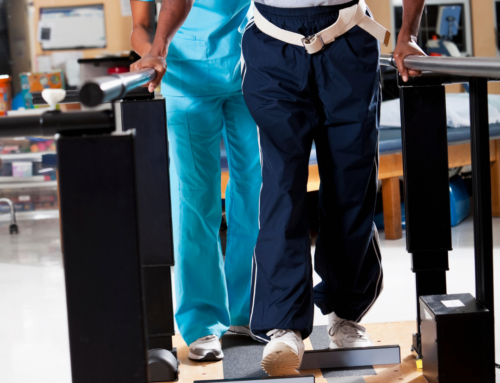Rotator cuff tendonitis, also known as shoulder impingement, occurs as a result of irritated or inflamed tendons in the shoulder. The tendon can become frayed due to the inflammation and can make shoulder mobility difficult. The condition tends to occur in individuals who engage in activities that require them to extend their arm over their shoulder and can become worse through overuse. Rotator cuff tendonitis is typically found in athletes such as baseball pitchers, tennis players, and swimmers, and can also affect other professionals such as hair stylists who have to hold their arms in the same position for long periods of time.
Symptoms of rotator cuff tendonitis include:
- Stiffness
- Difficulty raising and lowering the arm
- Clicking sounds from raising or rotating the arm
- Discomfort reaching behind the back
- Pain that wakes you from your sleep
- Loss of strength and mobility
- Radiating pain and swelling in the front and side of the affected arm
Initial symptoms can be relieved through rest but are likely to become sustained over a long period of time.
The best course of action is to visit your doctor if you are experiencing continuous pain and discomfort. The doctor will examine your shoulder for tenderness as well as test your range of motion and strength, and may also include taking a closer look at your neck to rule out the possibility of a pinched nerve. X-rays will offer a better understanding of what is causing your shoulder discomfort.
It is best advised to avoid activities involving the shoulder in order to manage pain caused by rotator cuff tendonitis. Remember to apply ice to the affected shoulder three to four times a week in order to help manage the pain. It is also recommended to take a non-steroidal anti-inflammatory medication, such as ibuprofen, if you are experiencing pain or plan on engaging in activities that may cause you pain.
Physical therapy is a non-surgical recommended course of action for rotator cuff tendonitis. A physical therapist will show you stretches and passive exercises to help restore range of motion in the shoulder in order to help regain strength.
Arthroscopy is a noninvasive surgical procedure that is recommended if a nonsurgical course of action is not successful. This type of surgery requires two to three small cuts to be made around the shoulder in which the doctor will use different instruments to repair the damage.
Did you know that you have Direct Access to Physical Therapy? No referral is needed. We offer the best Physical Therapy on Long Island where you can get help from our trusted and expert Physical Therapists. We have several locations on Long Island including Massapequa, Valley Stream, Wantagh and Lindenhurst. To start your Physical Therapy evaluation, call Advance Physical Therapy and The Physical Therapy Alliance at (516) 568-4444.







Leave A Comment